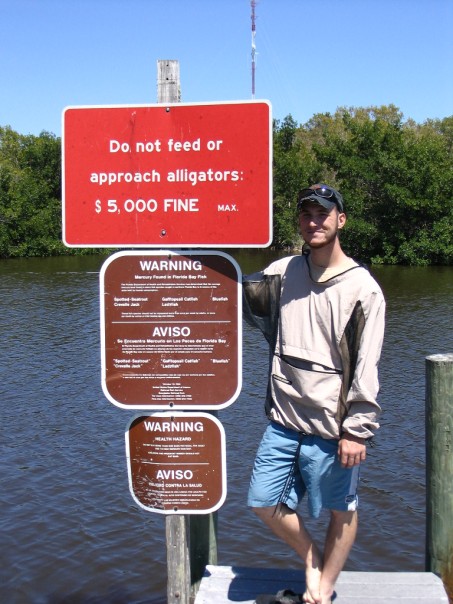
A major initiative has been launched to conserve the fragile wildlife of the islands of the Pacific.
It includes a commitment to protect nearly a third of coastal waters and a fifth of the land area of Micronesia.
The announcement was made on the fringes of a UN conference on the protection of the world's biodiversity.
Scientists have warned that the variety of life on Earth is declining at a rate unprecedented since the demise of the dinosaurs.
In a separate move, one of the world's largest marine parks will be created in the Pacific island nation of Kiribati to protect an extraordinary untouched coral ecosystem.
Island extinctions
Islands contain a disproportionate number of the world's species, as their isolation over millions of years has resulted in separate evolutionary pathways.
For example, the exotic white-crested Kagu (Rhynochetos jubatus) is the sole member of an entire bird family, and lives only on the island of New Caledonia.
Arc-eye hawkfish
The islands are home to 500 species of fish
Some 16% of the world's known plant species have evolved on islands and their coastal waters contain half of the planet's variety of marine life.
This isolation makes the wildlife uniquely vulnerable to extinction as environmental changes in just a small area can easily wipe out entire species.
Half of all known extinctions have involved island species, including the notorious case of the dodo on Mauritius.
Current threats include deforestation, over-fishing and the degradation of coral reefs, 30% of which are already severely damaged.
Future of fishing
The initiative to increase protection of Pacific islands was launched by the president of the tiny nation of Palau, an island group with a human population of barely 20,000.
Turtles mating, Phoenix Islands Protected Area
The reserve will allow marine wildlife to develop in peace
Its aim is to provide effective protection by 2020 of 30% of the inshore marine life of the ocean region of Micronesia, and of 20% of land ecosystems.
At the launch of the programme in the Brazilian city of Curitiba, a total of $18m was pledged towards conservation in Micronesia, coming from a combination of government funds, conservation organisations and international finance institutions.
The new marine protected area in Kiribati will cover an area twice the size of Portugal, and will heavily restrict human activities in the Phoenix Islands, a group of eight coral atolls between Hawaii and Fiji.
They are nearly uninhabited, and have stunned conservation scientists with an extraordinary variety of unique wildlife including 120 species of coral and more than 500 fish, some new to science.
In addition, it is an important stopping point for migrating birds and sea turtles.
While the Phoenix Islands are still in a remarkably pristine condition, the creation of the new protected area is designed to prevent future damage from over-fishing and to offset the impact of climate change.
This will involve setting up an endowment fund to compensate the government of Kiribati for revenue it could have got from the issuing of commercial fishing licences, and also to finance professional management of the wildlife.
It is hoped that by protecting coral ecosystems, the long-term future for small-scale fishing can be secured for people in the region, as the reefs provide important spawning grounds.
'Major milestone'
The island initiative is being contrasted with the slow pace of global efforts to address the crisis of biodiversity loss, with the government negotiations at this UN convention getting bogged down in arguments over finance and the rules for sharing profits from products such as drugs obtained through traditional knowledge of plants.
There has been concern from conservation organisations that while a growing proportion of land-based ecosystems are at least officially protected, the process of designating ocean areas for conservation has barely begun.
Russ Mittermeier, of the group Conservation International, which is helping to sponsor the Phoenix Islands protection scheme, said: "This is a major milestone for marine conservation efforts in the Pacific and for island biodiversity."
"The Republic of Kiribati has shown unprecedented vision for long-term conservation of its precious marine biodiversity."




No comments:
Post a Comment